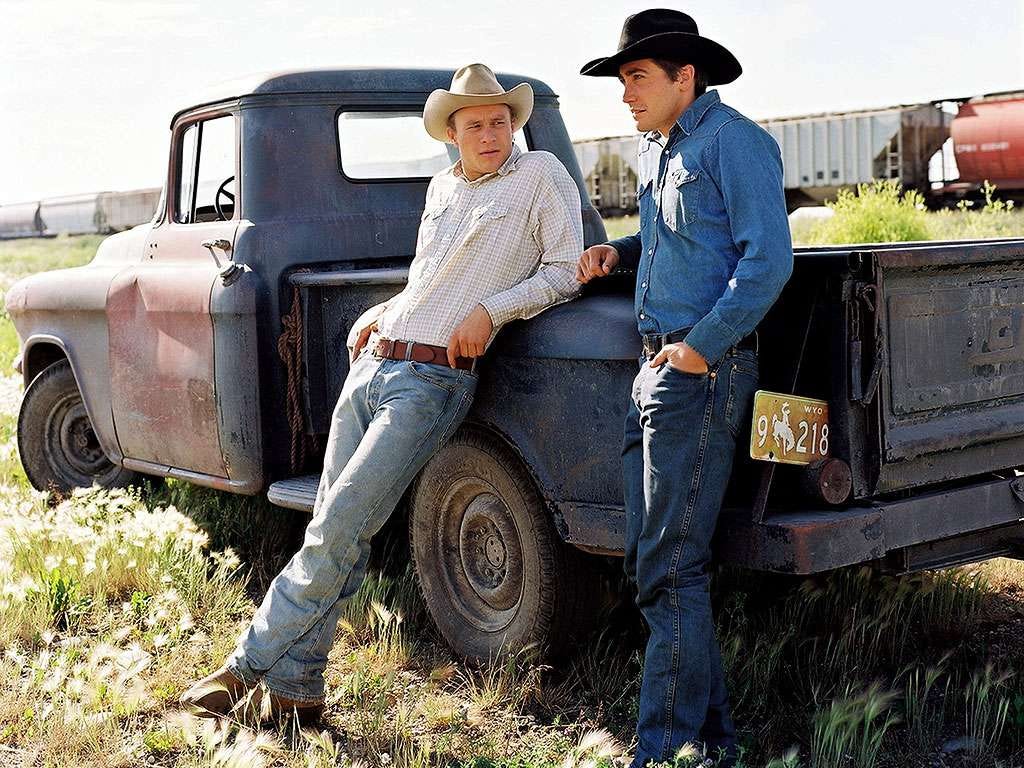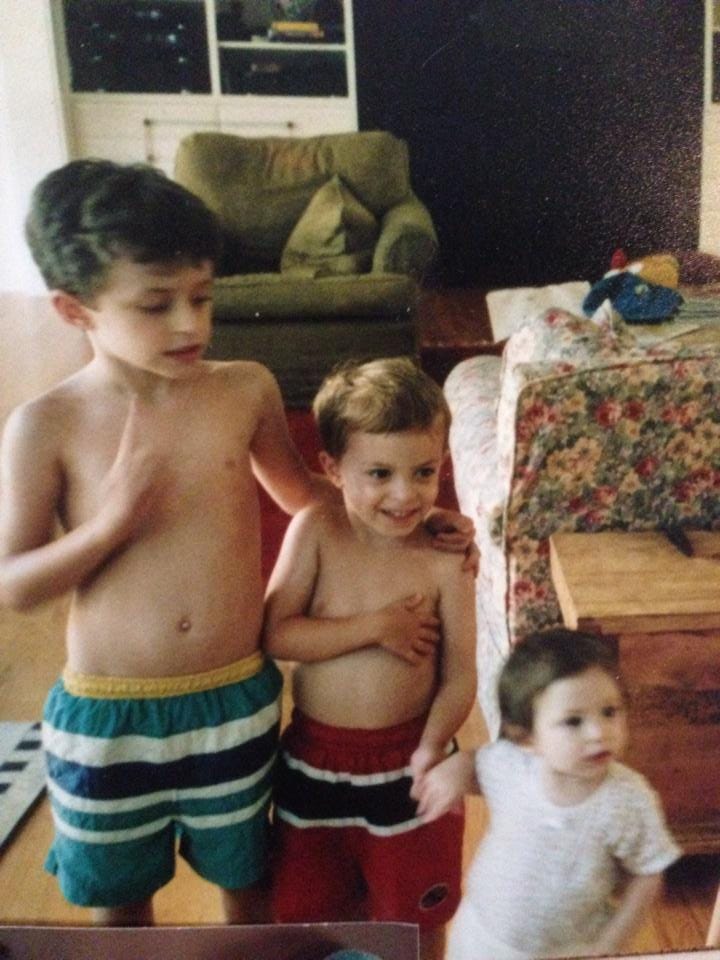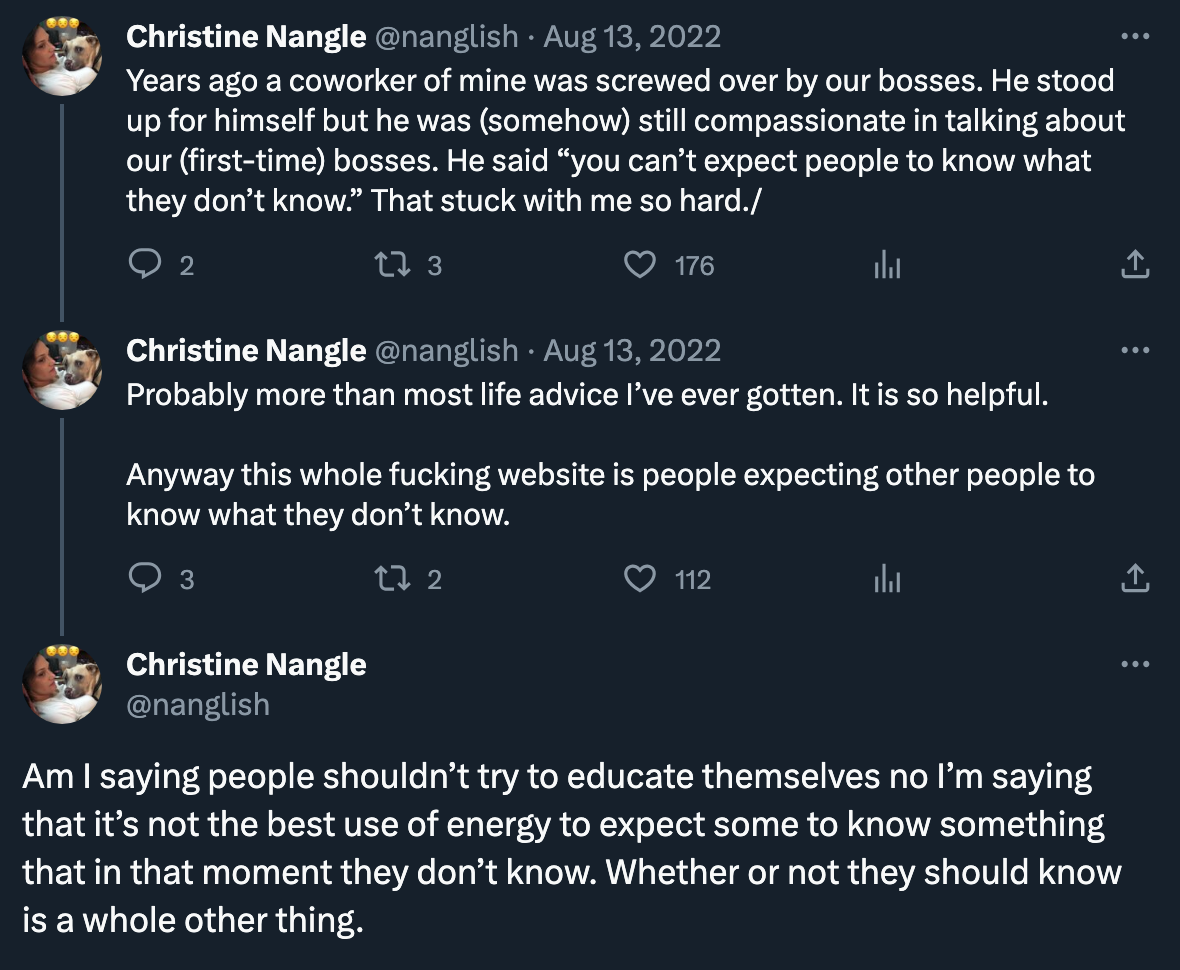I recently stumbled upon a clip from a show I do not watch (and it seems like I would have to download an app called PuPu or something to watch it). Here it is, if you’re interested:
tl;dr: In it, a closeted gay character declares joyously to his romantic interest that he “likes grouse,” a euphemism for being gay in a time where it couldn’t be said aloud.
I think they have reasonably good chemistry, the visuals are gorgeous, and the actor is doing a great job with the text. And I gotta say - I really dislike it!
Let’s take a step back.
People will sometimes ask me when I came out, which is a question I also ask other gay people a lot, and one I’m happy to answer. But I think the much more interesting question to ask (or a good follow up, at least) is “when did you know you were gay?”
Due to an abundance of media like Love, Simon (a movie I enjoyed, actually - I strongly believe gay people deserve mediocre teen romcoms just like the rest of the world!), and a push against the conservative talking point that being gay is a choice, the narrative we hear about most often is “person who has always known they were gay, but has remained in the closet out of fear.” And nothing against it - that is the experience of a lot of the homosexuals I know!
I had a different experience, which is that I truly didn’t know I was gay until the day I came out. Yes, in retrospect, this is insane, given pictures like this:
Or this one, in which I’m covering my bosoms out of modesty:
And, of course, my school report from kindergarten:
My poor parents (and probably Mrs. Barry) knew from so early on, but I did not! I mean, I sorta knew. And I also really, really didn’t. If this is confusing to you… join the club.
The day I came out, I remember one of my classmates coming up to me and saying “Everyone said you were gay. But I always told them that you said you weren’t!” She wasn’t actually annoyed, but I wondered if she had a right to be; after all, I had debatably been gaslighting her. I couldn’t quite figure out how I was supposed to feel about this exchange until years later, reading this tweet thread by very funny writer and very good person Christine Nangle:
You can’t blame someone for not knowing something! And I was doing a very good job at convincing myself that I was not gay. I told my friends I had crushes on girls… because I had crushes on girls. When I decided to try being bisexual at theater camp, I really believed I was bisexual (and yes, I do wish someone had made me listen to a recording of myself saying that, a la Tobias with the tape recorder).

In her book The Glass Hotel, a favorite of mine, Emily St. John Mandel chronicles the collapse of a (fictional) pyramid scheme. My favorite theme in the novel is that “it’s possible to both know and not know something” - in the context of the book, the “something” is that the characters are working for a scam, and therefore ruining lives. Your brain does what it must to preserve cognitive dissonance, so that you can continue to go about your day without crippling anxiety attacks.
It’s worth mentioning that I think this phenomenon occurs as well with homophobic parents of obviously queer kids. I know mothers who love their lesbian daughters, while somehow still believing they will go to hell. I know fathers who have attended their son’s wedding, but somehow secretly maintain the belief that the couple has never had sex. To adapt a Wandavision quote: “What is grief [fatherhood], if not love [the belief that your son has never been railed from behind] persevering?”
But back to the gays. In my experience, when you are caught between the rock-and-hard-place of knowing you are gay and not knowing it at the same time, the thing you want least in the whole world is to verbalize it, because that makes it real. And as long as you live in the in-between, you don’t have to deal with consequences.
This year I read the Brokeback Mountain short story by Annie Proulx, which the movie is based on. I really, deeply loved it, and am truly in awe by how exquisitely she managed to write this dynamic. The characters end up in a years-long sexual relationship, and yet they’re both aware that acknowledging it aloud, making it real in any way, would be the death of the best thing in their lives. The entire story takes place on this precipice, a balancing act that unfortunately is all too familiar.

Gay people with internalized homophobia will reject the admission of it - both to themselves and out loud - at any cost. They will explore it only when the yearning becomes so strong that it eclipses their judgment. And that exploration is almost never done without a ready excuse - “our knees touched accidentally.,” “I was so drunk, I had no idea what I was doing,” etc.
I have never been a cowboy in a secret gay relationship. And yet every moment of that story felt true to me, because I know the Precipice so intimately. Watching Sanditon, I found myself longing for that nuance, and searched the comments for people who agreed:
I am inclined to agree with Lisa Gilde LaMadrid here (or do we think her middle name is Gildela?). Not in the way she means, in the “I don’t like gay people and my name is Lisa Gilde LaMadrid” way, but because the outright aspect of this scene is what takes me out of it. Additionally, while researching this I learned that this is an adaptation of an unfinished Austen manuscript, and I can’t help but feel like this nuance-free dialogue does Austen, queen of romantic dialogue, a disservice.
(I now feel bad for slandering so heartily a show I have only seen four minutes of. I really am just using it as a scapegoat for this type of scene, and am sure it has its merits. If any of you stream it regularly on PuPu and would like to make a case for it, please feel free to comment or reply.)
Basically, what I’m saying is it’s possible to tell stories of burgeoning queerness in a way that feels honest, nuanced, and period-faithful. It is sincerely moving to watch characters find and cling to small, precious drops of happiness, rather than stumbling upon happy queer oases where there ought to be desert.
For anyone who would like recommendations, here are some of my favorite examples of gay romance that do not suffer from grouse syndrome: The Song of Achilles (novel), Portrait of a Lady on Fire (film), Call Me By Your Name (film/novel), Skam S3 (tv), The Binding (novel).
Hope you enjoyed this screed. It mainly derives from me desperately wanting to be paid to write this kind of thing but not (yet) receiving the opportunities to do so.
Knowing I’m unemployed and not knowing it at the same time,
Johnny








